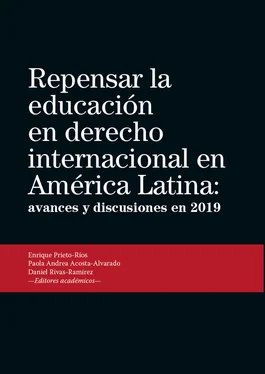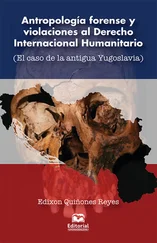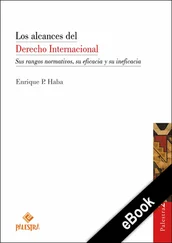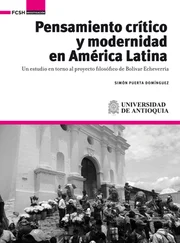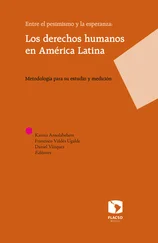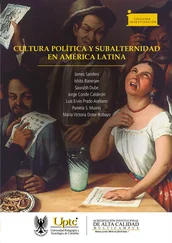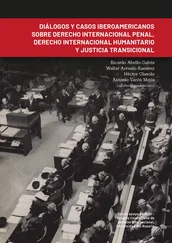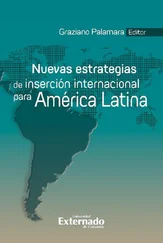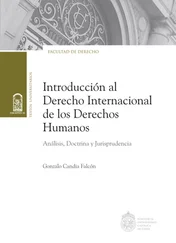6Foram analisados os programas das disciplinas Direito Internacional Público I e II da Faculdade de Direito da PUC-SP; Direito Internacional Público I e II da FDUSP; Direito Global, Direito Global III e Ordem Jurídica Internacional da FGV Direito SP; e Direito Internacional Público da Faculdade de Direito da Universidade Presbiteriana Mackenzie.
7Brasil. Ministério da Educação, Portaria n. 1886, de 30 de dezembro de 1994 . Disponível em: < https://www.migalhas.com.br/arquivo_artigo/art20100108-03.pdf>, acesso em 18 nov. 2019.
8Conforme a Resolução CNE/CES n. 9, de 29 de setembro de 2004, art. 5, II, o curso de direito deve contemplar, entre outros o “Eixo de Formação Profissional, abrangendo, além do enfoque dogmático, o conhecimento e a aplicação, observadas as peculiaridades dos diversos ramos do Direito, de qualquer natureza, estudados sistematicamente e contextualizados segundo a evolução da Ciência do Direito e sua aplicação às mudanças sociais, econômicas, políticas e culturais do Brasil e suas relações internacionais, incluindo-se necessariamente, dentre outros condizentes com o projeto pedagógico, conteúdos essenciais sobre Direito Constitucional, Direito Administrativo, Direito Tributário, Direito Penal, Direito Civil, Direito Empresarial, Direito do Trabalho, Direito Internacional e Direito Processual”. Brasil. Ministério da Educação, Resolução CNE/CES n. 9, de 29 de setembro de 2004 . Disponível em: < http://portal.mec.gov.br/cne/arquivos/pdf/rces09_04.pdf>, acesso em 18 nov. 2019.
9Resolução n. 5, de 17 de dezembro de 2018. Artigo 5º, inciso “II - Formação técnico-jurídica, que abrange, além do enfoque dogmático, o conhecimento e a aplicação, observadas as peculiaridades dos diversos ramos do Direito, de qualquer natureza, estudados sistematicamente e contextualizados segundo a sua evolução e aplicação às mudanças sociais, econômicas, políticas e culturais do Brasil e suas relações internacionais, incluindo-se, necessariamente, dentre outros condizentes com o PPC, conteúdos essenciais referentes às áreas de Teoria do Direito, Direito Constitucional, Direito Administrativo, Direito Tributário, Direito Penal, Direito Civil, Direito Empresarial, Direito do Trabalho, Direito Internacional, Direito Processual; Direito Previdenciário, Formas Consensuais de Solução de Conflitos[…]”. Brasil, Ministério da Educação, Resolução n. 5, de 17 de dezembro de 2018 . Disponível em: < http://portal.mec.gov.br/publicacoes-para-professores/30000-uncategorised/62611-resolucoes-cne-ces-2018>, acesso em 18 de nov. 2019.
10Artigo 3º, Resolução n. 5, de 17 de dezembro de 2018 .
11Artigo 12, Resolução n. 5, de 17 de dezembro de 2018 , supra nota 13; Artigo 2º, Resolução n. 2, de 18 de Junho de 2007. Brasil, Ministério da Educação, Resolução n. 2, de 18 de Junho de 2007 . Disponível em: < http://portal.mec.gov.br/cne/arquivos/pdf/2007/rces002_07.pdf>, acesso em 18 de nov. 2019.
12Artigo 4, Resolução n. 5, de 17 de dezembro de 2018.
13A pesquisa foi conduzida por equipe da FGV Direito SP e abordou o ensino do direito internacional no Brasil sob a perspectiva dos professores de algumas universidades do país. Seus principais resultados foram relatados em: Brito & Nasser, “Ensinar direito internacional no Brasil”.
14Brito & Nasser, “Ensinar direito internacional no Brasil”, p. 126 e ss.
15Brito & Nasser, “Ensinar direito internacional no Brasil”, p. 126.
16Para uma análise mais aprofundada a respeito dos manuais de direito internacional brasileiros, ver a contribuição de Fabio Morosini e Luiza Leão al projecto REDIAL.
17Rubens E. Gleizer, Victor M. Dias, Adriane S. Brtiro & Rafael A. F. Zanatta. “Transforming Legal Capacity in Brazil: International Trade Law and the Myth of a Booming Practice”, em The Brazilian Legal Profession in the Age of Globalization , organizado por David Trubek & David Wilkins. Cambridge, Cambridge University Press, 2017, p. 264-293.
18O termo remonta ao início da Royal Society, em Londres, em 1660. Ver Royal Society. History of the Royal Society . Londres, 2019. Disponível em: https://royalsociety.org/about-us/history/, acesso em 30 jul. 2019.
19A primeira vez que o Oscar Schachter menciona a existência do invisible college of international lawyers se deu em 1973, em obra endereçada ao Instituto de Direito Internacional. Vide Oscar Schachter. The role of the Institute of International Law and its methods of work: today and tomorrow . Genève, Tribune de Genève, 1973. Vide também Santiago Villalpando. “The ‘Invisible College of International Lawyers’ forty years later”, em, ESIL Conference Paper Series , Amsterdam, v. 3, n. 1, 2013, p. 1-14. Disponível em: < https://tinyurl.com/y6x6yaq8>, acesso em 30 jul. 2019. p. 02.
20“International law, after all, is not a scientific discipline in the same sense as physics or chemistry. It is not value-free; its concepts and norms are deeply enmeshed in the interests of national states and in the philosophic and political attitudes of diverse social and cultural societies. To assume that international law can be entirely separated from these factors, to rise above them, is not borne out by experience or realistic hopes for the future. Even highly technical subjects are frequently approached in quite different ways by those who differ in their conceptions of the ends to be served and of the ordering of values. A fortiori, such diverse approaches characterize the more political subjects, such as those bearing upon peace and security, the sharing of resources or social justice – subjects which are today a significant part of international law”. Schachter, “The role of the Institute of International Law and its methods of work” p. 218.
21Schachter, “The role of the Institute of International Law and its methods of work”, p. 217.
22Schachter, “The role of the Institute of International Law and its methods of work”, p. 221.
23Schachter, “The role of the Institute of International Law and its methods of work”, p. 222.
24“The reason is essentially the same as that which underlies the requirements in the statutes of the International Court of Justice and the International Law Commission that international juridical bodies should be representative of the world as a whole”. Schachter, “The role of the Institute of International Law and its methods of work”, p. 223 (tradução nossa).
25United Nations. International Law Commission. Fragmentation of International Law: difficulties arising from the diversification and expansion of International Law. Report of the Study Group of the International Law Commission. Finalized by Martti Koskenniemi . [Geneva, 2006]. Disponível em: < https://tinyurl.com/y5sg6gg2>, acesso em 30 jul. 2019.
26“What once appeared to be governed by ‘general international law’ has become the field of operation for such specialist systems as ‘trade law’, ‘human rights law’, ‘environmental law’, ‘law of the sea’, ‘European law’ and even such exotic and highly specialized knowledges as ‘investment law’ or ‘international refugee law’ etc. - each possessing their own principles and institutions”. United Nations. International Law Commission. Fragmentation of International Law , p. 11.
27Villalpando, “The ‘Invisible College of International Lawyers’ forty years later.”
28“That professional community, though dispersed throughout the world and engaged in diverse occupations, constitutes a kind of invisible college dedicated to a common intellectual enterprise”. Schachter, “The role of the Institute of International Law and its methods of work”, p. 217.
Читать дальше
